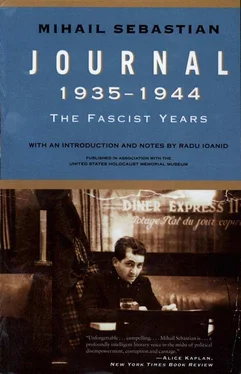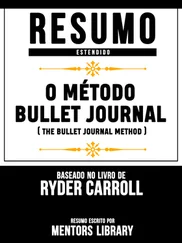Over the past three weeks I have picked up many of his works on various radio stations. One evening, from Warsaw, there was the Double Violin Concerto in D Minor.; the Concerto in D Minor for Three Pianos, and another concerto, also in D minor, for piano and orchestra. Stuttgart had the Fifth Brandenburg Concerto, two cantatas, and a trio sonata for harpsichord, violin, and viola da gamba. (The same evening, from Warsaw, there was a Debussy sonata for flute, cello, and harp. Magnificent.) Later, two preludes and a fugue for organ, from Bucharest. Last Monday the Second Brandenburg Concerto, an aria, and a cantata from Budapest, and on Tuesday — again from Prague — the Third Brandenburg Concerto and another one in E major. One evening Berlin had a few organ pieces―I no longer remember which ones — and a suite for unaccompanied cello, heartrendingly calm and solemn.
And then, very many things I can no longer recall. (Bach two to three times a week from Stuttgart, after one in the morning. And one evening a delightful Kleine nachtmusik by Mozart, also from there.)
Finally, longer ago, Vienna had a memorable performance of the double violin concerto. A Handel sonata, Ysaÿe’s Variations on an Old Theme, and a sonata by Philipp Emanuel Bach.
A cold rainy spring — I do not mean sad. .
Elections at the S.S.R. 1How wretched! I cannot forgive myself that for one moment I had the naiveté to think the game was serious.
As soon as you give up being alone, everything is lost.
This evening I listened to a Bruno Walter concert from Prague.
The overture to Gluck’s Iphigènie en Aulide, a Mozart violin concerto in G major (the first time I have heard it, I think), and Beethoven’s Ninth Symphony. The Mozart seemed more delicate and melodic than ever.
The universities are closed. So tomorrow I no longer have Nae’s course.
I saw some appalling things in the street. Wild animals. 2
Yesterday Leni 3came at one o’clock to pick me up at the newspaper. It was a beautiful day, like the middle of June. She was superb. Tailor-made suit, shoes, handbag, a little ribbon around her neck, the brim of her blue hat. With me she has a kind of timidity that makes her look solemn.
She said she had heard of a lover I am supposed to have had for a long time in Brăila.
“That’s the reason I haven’t called you any more. It’s how I explain why you are so reserved. I haven’t wanted to disturb you.”
I protested and said there was no truth in it.
“So then?”
“So then”—I said to myself: be sensible, kid. “So then, it’s just my natural reserve.”
“Caution, in other words.”
“If you like. But I think it’s more a question of self-knowledge. It would be expecting too much of things I don’t deserve.”
“You don’t know what you do and do not deserve. And in particular, you don’t know what someone else may be thinking about you.”
We went for a walk in Cişmigiu, and I was proud of how beautiful she was. It could be love.
2:30 a.m.
An eventful day. Visited Leni. We are in love; we said it to each other. She is young and beautiful, has an admirably simple way of speaking— and I find it so inexplicable that she is coming closer to me.
But it is not prudent, and I don’t know how I’ll ever get out of this. How many things have gone wrong because of my ill luck! I had so much going for me to be happy. I had enormous ability, with no complications and no drama. And all that broke down horribly at the age of seventeen and a half. I am disgusted by it sometimes, or more often saddened. Why, Lord, why?
I would so much like to be happy, and I would have asked so little.
The evening at the Nenişors’ 4and then at Zissu. 5(I danced.) When I hooted for fun on the way home, she said: “You’ve so much of the child inside you, yet you’re so tired of life.”
For someone who has known me for only ten days, that was surprisingly accurate. Yes, it’s true. It’s terrible how calmly I accept the idea of death.
Went for a walk with Leni and a friend of hers, Jeni Cruţescu, on the Şosea. The first spring morning, after so many rainy ones. It was warm; a lot of green, a lot of yellow. We had vermouths and snacks at the Flora. Leni was delightfully dressed. People turned their heads at us, and I was again proud to be walking beside her.
But in the afternoon I felt a terrible need to see her again. That is not good at all, though I’m beginning to be seriously in love with her. How will I get out of that?
I met her at a football match (Venus-Juventus), but she arrived late from a theatre rehearsal for the next premiere.
I cannot explain the interest she has in me. She is so beautiful — I am so badly dressed, so awkward. I realize how simple this love could be, how restful.
Lunch at Aristide Blank’s 6with Leni, Froda, Mrs. Blank, a guy I’ve never met before, and two young women — a rather ugly Viennese brunette and a South American blonde who spoke French with a delightful Anglo-Saxon accent.
Coffee and cognac on a terrace, in a kind of courtyard made restful by the colors and the wind blowing through it. Blank is a poseur. Leni was surprisingly ill at ease, but with adorably simple gestures. She is extremely shy, to my amazement. She claims that I intimidate her.
(Yesterday, at the football match at the O.N.E.F. [Stadium], she was uneasy, silent, “melancholic” for a lot of the time, but immediately became talkative, expansive, almost boisterous when Ronea, from the Regina Maria Theatre, joined our group — a man with whom she has certainly slept in the past. Her sudden “mise à Paise” 7infuriated me. But it is certainly not her fault. I am always the one to blame: I am probably too complicated and basically incomprehensible for her, whereas she has been so straightforward with me from the beginning.)
I did not mean to write about this, however, but about the South American blonde. We exchanged a few words, enough for me to draw a cinema sketch of her. She said:
“I’m South American. Where do I live? Pretty well everywhere. Look, I’ve just come from Vienna and plan to stay a couple of weeks. Then I’ll go back to Vienna and meet up with my husband, who is on a business trip in Africa at the moment. No, I don’t live in Germany. I have a house in Hamburg, though I haven’t been there for three years. But I’ll be going on the Rhine for a while this summer. We have a villa there. Then maybe to North Africa, where we also have a little house.”
So, I said, you live on the whole planet.
“No,” she smiled with sincere modesty. “No.”
Strange people. And we can vegetate for a whole lifetime in Sfinţii Apostoli, Popa Tatu, or Radu-Vodă! 8
I must see Poldy! The trip that I initially thought to be out of the question must become possible. Things need to be cleared up — so that at least I know where I stand. How funny it would be if there were only a medical matter involved!
But no, I don’t have too many illusions. But I do want to know.
Like a fool, I allowed myself to get caught up in a story that I knew from the beginning would lead nowhere. Here I am smitten, jealous of every man with whom she ever slept, preoccupied at every moment with what she is or might be doing, happy when she is smiling, miserable when she is too jolly, trembling when I hear her voice on the telephone. I am rediscovering that ebb and flow of emotions that I have not experienced for a long while, since Jeni’s time, in the most feverish moments of my love — mornings when everything is simple and unimportant, when it seems neither here nor there whether I see her or not; evenings heavy with melancholy, with a desire to see her that is physically located in the heart.
Читать дальше











